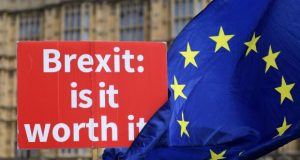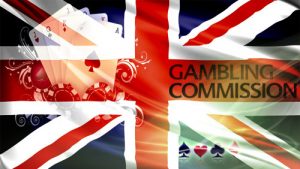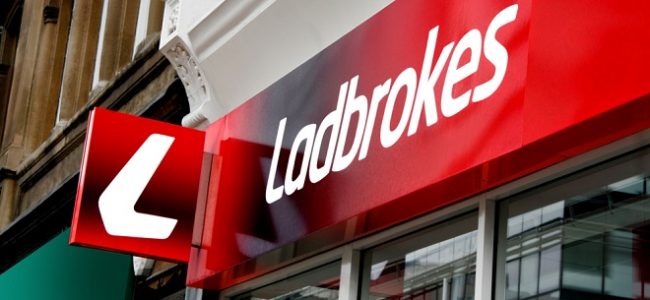
During the recent FIFA World Cup, numerous television viewers across the UK complained of too many adverts that centered on gambling. Independent studies have as a matter of fact deduced that a combined 90 minutes of betting-related adverts were beamed to the UK screens throughout the four-week tournament.
This did not go well with most parents and caregivers in the nation. In light of this, well over 115 complaints were lodged to the UK advertising watchdog by viewers across the nation at that time. Most of the complaints were about the frequency of the adverts, the exposure of the same to small children, and the pressure tactics that were employed to push through the betting agenda.
Most parents expressed concerns that these adverts tend to make gambling appear a normal or acceptable way of life. They also decried the enticing and pressure language that the betting firms used to push their message. These, they claimed, included such terms as ‘Bet Now,’ and ‘bet in play, now!’ among others.
Under the prevailing terms of references, no gambling adverts are to be screen before the watershed moments of 9 PM onwards. The same case applies to programs or channels that are exclusively dedicated to children entertainment. Moreover, such firms are prohibited from using tactics and languages that are designed to coerce people to gamble. These rules do not, however, prohibit firms from promoting live odds when matches are in progress.
There was also a general consensus among the viewers that these adverts ate some of the time that was allocated to the FIFA matches. They subsequently asked the UK’s advertising watchdog, Advertising Standards Authority, to step in and rein on the menace.
After the formal receipt of these complains, the UK’s advertising watchdog decided to embark on independent investigations. At the moment, the watchdog agency is evaluating those complaints to ascertain whether they indeed meet the threshold that is necessary for a formal investigation.
The watchdog is also set to determine whether those tactics that were used by the various betting firms violated the stipulated UK advertising codes. Of particular interest to the watchdog agency will be whether the tactics went against the new rules that were established in February to combat problem gambling.
It will be interesting to note the subsequent course of action that the watchdog shall take. This is because FIFA matches do not fall under the jurisdiction of the watchdog. Because of this, watchdog agency lacks the mandate to penalize or enforce such rules on the program.
The watchdog shall most likely follow in the footsteps of other watchdogs world over. They might tighten the noose on gambling adverts and the revenues that are derived from advertising. This is to hinder the popularity and the adoption of gambling as a whole.
Italy, for instance, has taken the lead in doing so. The nation’s Minister for Labour and Economic Development, Luigi Di Maio, has already proposed to ban all forms of gambling advertisements. The only exceptions to this rule, he stated, will be the companies that already have advertising contracts.
Australia has also banned any form of advertising during the day, even for live sports. This shall greatly reduce the number of persons who will most likely view the adverts, keep small children off such adverts, and contribute towards combating problem gambling.
The jury is out. It waits to be seen the kinds of recommendations that the watchdog shall propose. It also waits to be seen the reactions and responses that the various stakeholders shall put forth. This is also interesting considering the liberalized nature of much of the UK’s business sectors.


 The owners of online casinos seem not to be satisfied by the government’s decision claiming that it will limit on their profits. The government will announce the new POC tax rate before the end of this year.
The owners of online casinos seem not to be satisfied by the government’s decision claiming that it will limit on their profits. The government will announce the new POC tax rate before the end of this year. The recent dual resignations of two British top ministers i.e. David Davis and Boris Johnson have further exacerbated the situation. Their resignations have shaken the government to the core and created a wave of uncertainty as regards the way forward. Indeed many waits with bated breath to see how the events shall unfold.
The recent dual resignations of two British top ministers i.e. David Davis and Boris Johnson have further exacerbated the situation. Their resignations have shaken the government to the core and created a wave of uncertainty as regards the way forward. Indeed many waits with bated breath to see how the events shall unfold. Researchers under the auspices of The University of Sheffield monitored the entire television advertising breakdown during World Cup telecasts. Even the bottom figure of 17% of adverts being for Internet-based casinos and bookmakers is enough to bring the ire of many detractors.
Researchers under the auspices of The University of Sheffield monitored the entire television advertising breakdown during World Cup telecasts. Even the bottom figure of 17% of adverts being for Internet-based casinos and bookmakers is enough to bring the ire of many detractors.  Banks are known to have played a role in in the acceleration of the problem in the past due to the free access that they give to account holders. Currently, these financial institutions are bringing a change to the scenario through assisting the addicts to refrain from drawing money that one can use in gambling.
Banks are known to have played a role in in the acceleration of the problem in the past due to the free access that they give to account holders. Currently, these financial institutions are bringing a change to the scenario through assisting the addicts to refrain from drawing money that one can use in gambling. The timeline of activities was created by Dr, Heather Wardle who is the representative for the Responsible Gambling Strategy Board (RGSB) and also one of the highly sought independent advisers for the main gambling regulation body in the UK. The report followed collaboration between UKGC, RGSB, and GambleAware which is a UK-based gambling problem charity that provided funding for the activity. The activity is aiming at finding a better means of measuring and understanding the effects and the price that the British society is paying as a result of gambling activities.
The timeline of activities was created by Dr, Heather Wardle who is the representative for the Responsible Gambling Strategy Board (RGSB) and also one of the highly sought independent advisers for the main gambling regulation body in the UK. The report followed collaboration between UKGC, RGSB, and GambleAware which is a UK-based gambling problem charity that provided funding for the activity. The activity is aiming at finding a better means of measuring and understanding the effects and the price that the British society is paying as a result of gambling activities.
 The United Kingdom Gambling Commission sets down these ground rules to prevent abuse within the system. But
The United Kingdom Gambling Commission sets down these ground rules to prevent abuse within the system. But  The report covers self-exclusion, customer interaction, unfair terms, anti-money laundering and illegal gambling activities. Operators are required to pay close attention to the lessons that are set in the report. They need to find ways to keep their consumers safer and to make the gambling activities fairer.
The report covers self-exclusion, customer interaction, unfair terms, anti-money laundering and illegal gambling activities. Operators are required to pay close attention to the lessons that are set in the report. They need to find ways to keep their consumers safer and to make the gambling activities fairer.